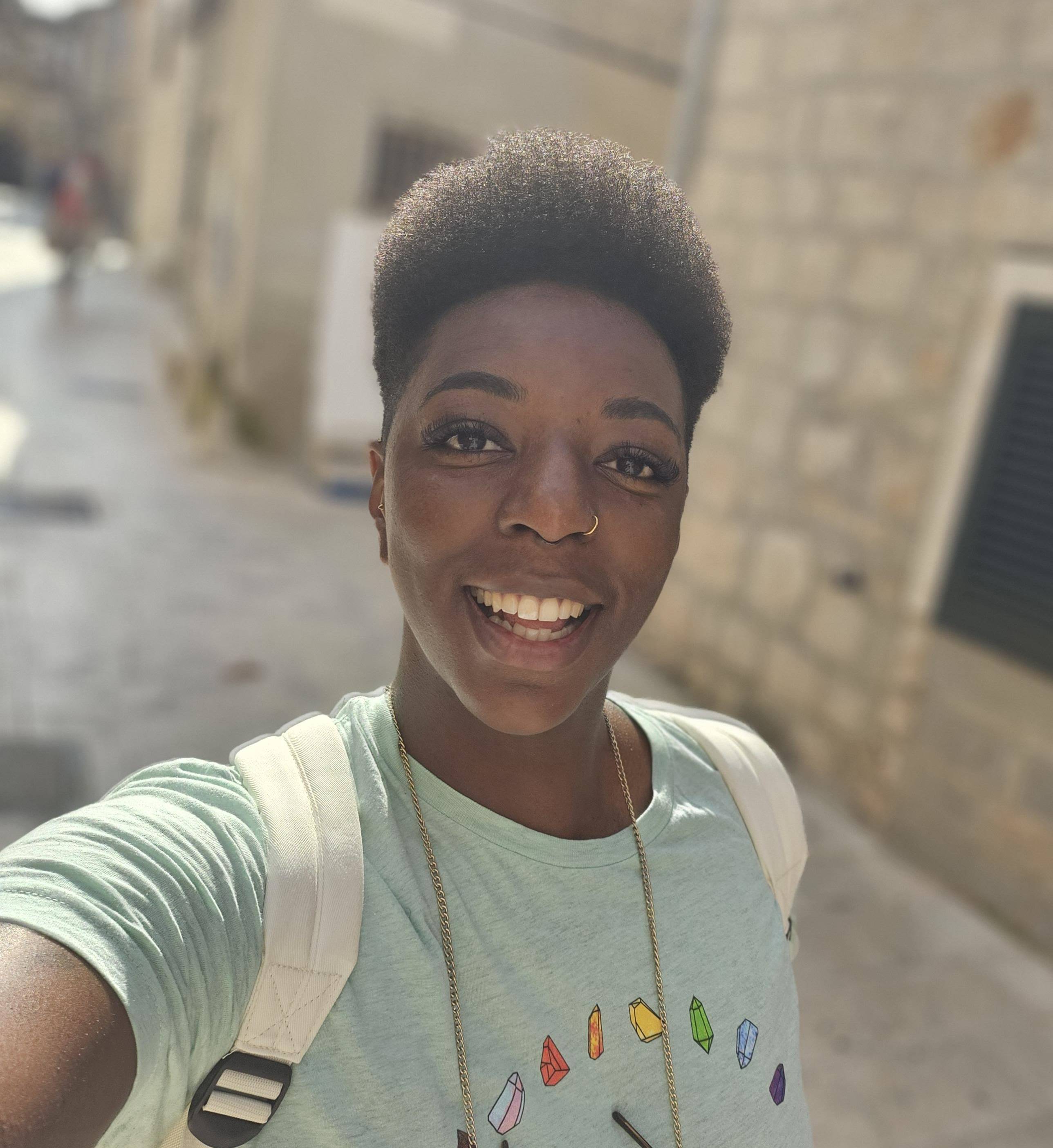
Black History Month: Char Erskine on the Importance of Teaching Black History in Schools
Interviews
“Black history should be taught in all schools as an integral part of British history, because that's exactly what it is,” Char Erskine, Senior Inclusion Manager at Taylor Wessing, spoke to myGwork about their thoughts on the importance of teaching Black history in schools, and who they consider to be their black queer icons.
Hi Char! Tell us about your role at your organization.
Hey there, I’m the Senior Inclusion Manager at Taylor Wessing, non-binary rep of our equaliTW (LGBTQ+) employee network and driver of all things diversity, equity and inclusion at the firm. I'm also a proud Afro-Caribbean with roots in Antigua and Jamaica.
Were you taught about Black history in school? If not – what difference would this have made to you?
The only mention of Black people in my history lessons was a quick anecdote about the Ku Klux Klan, which made me extremely uncomfortable as the only Black pupil in the class. Other than that, we were not taught anything about Black people in history, and Black History Month was only celebrated once when a couple of the sixth form pupils asked to stage an African-themed fashion show when I was about fifteen.

Being taught Black history in school would have made a huge difference to my sense of belonging in my school and in the UK. Despite being born and raised in this country, the lack of representation in British history lessons reinforced a sense that I didn't belong here and that I wasn't British enough because there was no sight of how families like mine ended up in this country. It wasn't until I was a young adult and started visiting museums and exhibitions on my own that I realised that Black people even existed in the UK during periods of history that I had spent years studying in school. I loved learning about the Tudors in school, but nobody mentioned that there were Black 'free people' during that period of history, and that was a lost opportunity to bring in the diversity of British history.
Black history should be taught in all schools as an integral part of British history, because that's exactly what it is. With the publicity of things like the Windrush scandal, we have finally gained sight of the significance of Black people in shaping the country we now live in, even though those stories also come with scandal and sadness too.
What does Black History Month mean to you and why do you find it important?
This month is a pretty significant time of the year for me to reflect and take stock of progress being made (or not made) for the Black community, particularly as my role is in the DEI space. For a long time, Black History Month felt like it had to focus on our history from hundreds of years ago, but I think we've seen a shift where we can look at more recent history for the Black community and the impact it had and continues to have on us.
I think this month is important because Black history has not yet been integrated into British history. Even though some schools and institutions are changing that for the younger generation, there are a lot of us who have missed that chance, so having October as a month to amplify our stories, celebrate our culture and have the limelight for 31 days of the year is quite nice.
Why is it important that this month includes Black LGBTQ+ people from across history?
To put it bluntly, the Black community still has a huge issue with homophobia and transphobia. Luckily, there is a growing community of Black LGBTQ+ people who are carving out spaces for themselves, particularly for those of us who are lucky to have access to larger and more diverse cities, because they are too Queer for Black spaces and too Black for Queer spaces. There are also some great organisations and community groups that recognise the need for anti-racism in their LGBTQ+ spaces, which is great for those of us with those intersectional lived experiences.
I've seen the direct impact of coming out in a Black family and being shunned because of it, so I do view this intersectionality as something that can't be left behind when we are having conversations about racial justice and equity. There are LGBTQ+ people who have been significant in historical conversations about racial justice, such as Audre Lorde and Angela Davis, and there are Black people who have had a significant role in LGBTQ+ rights movements, such as Marsha P Johnson and Pearl Alcock.
Who are some of your favourite Black LGBTQ+ people from throughout history?
As it's the UK Black History Month, I'll focus on those who have impacted us in the UK:
I'm no football fan, but Justin Fashanu is someone who will always be on my list of key figures in Black British LGBTQ+ history. There is so much we can still learn from his story both within the Black community and within football fandoms about how we respond to and support those who reveal they are part of the LGBTQ+ community.
Skin, of Skunk Anansie, is another idol of mine from the community. She has been smashing stereotypes for as long as I've been alive and is not afraid to speak out on topics that she feels strongly about.
Pearl Alcock is also one of my favourite Black LGBTQ+ people in history. She arrived in London from Jamaica as part of the Windrush generation in 1958 and she went on to open a "shebeen" (an illegal club) in Brixton that was a refuge for the local Black gay community. She took actions 65 years ago that are reflective of what a lot of our community is still looking for now – inclusive spaces that offer safety from discrimination and hate.

